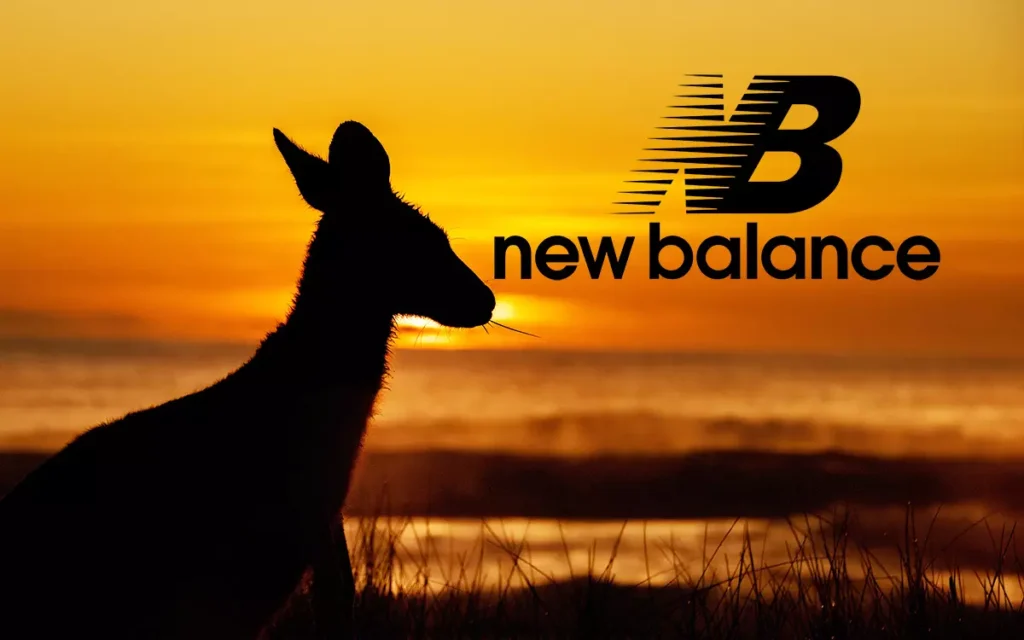Boston-based athletic wear brand announces pledges to drop kangaroo-based shoes six months after Portland-based Nike says it will move away from the use of wildlife skins to make soccer cleats.
Washington, D.C. — The athletic wear giant New Balance informed the Center for a Humane Economy yesterday that it has altered its sourcing policies and that the company will phase out its use of kangaroo skins and halt sales of kangaroo-based shoes by next December.
The announcement comes six months after Nike announced a similar policy, though Nike will halt sourcing and sales of kangaroo skins by the end of this year. The Center for a Humane Economy applauded New Balance for instituting this new policy, as it did with Nike and Puma.

Since the Center began its Kangaroos Are Not Shoes campaign more than three years ago, four of the five biggest global athletic shoe brands have announced policies to stop sourcing kangaroo skins for athletic shoes: New Balance and Nike, based in the United States; Puma, headquartered in Germany; and Diadora, located in Italy. Adidas, also based in Germany, is the major outlier among the five big brands. There are several other shoe companies still using kangaroo skins, including Mizuno, based in Japan.
“New Balance deserves our praise for pledging to disassociate itself from the wildlife-skin trade,” said Wayne Pacelle, president of the Center for a Humane Economy and Animal Wellness Action. “The two biggest athletic shoe sellers based in the United States have announced in 2023 that they will rapidly phase out sourcing kangaroo skins for soccer shoes, and there’s no question that the decisions will diminish the financing of the commercial massacres of kangaroos in their native habitats in Australia.”
Nike, Puma, and New Balance pledging in 2023 to eliminate kangaroo skins from their offerings and to embrace sustainable synthetics clinches a trend that has been in place for years. Out of 172 goals scored in last year’s World Cup, 164 came from players wearing synthetic shoes or conventional leather (though synthetics dominated).
“We applaud New Balance on their decision to stop using kangaroo in their soccer cleats and the Center for a Humane Economy for helping make it happen,” said Emma Hurst, a Member of Parliament in New South Wales. “The demand for kangaroo leather is driving the commercial slaughter of kangaroos across Australia. New Balance is now among other major brands like Nike who are turning away from the unnecessary trade in wild native animals.”
Each year, more than a million wild kangaroos are cruelly gunned down in their native habitat. In addition, perhaps more than 300,000 joeys are orphaned and die after their mothers are slain in night-time shoots. Killing guidelines are deficient and impossible to enforce in the Outback and in the dead of night, when the mass shootings occur. The industry’s commercial code instructs the hunter to then kill the joey by blunt force trauma to the head, which is often accomplished by slamming the joey against the side of a car or another hard surface.
Leading a bipartisan group of three Republicans and three Democrats as sponsors, U.S. Representatives Brian Fitzpatrick, R-Penn., and Jan Schakowsky, D-Ill., two months ago introduced the Kangaroo Protection Act, H.R. 4995, to ban the sale of kangaroo body parts in the United States. The United States, along with the European Union and China, is one of the biggest markets for soccer cleats in the world. A Senate companion bill will soon be introduced. Hurst and Georgie Purcell, a Member of Parliament in Victoria, lobbied U.S. lawmakers this week urging support for the Kangaroo Protection Act.
As part of their Kangaroos Are Not Shoes campaign, the Center for a Humane Economy and Animal Wellness action produced a groundbreaking report in June 2020. Animal Wellness Action and the Center have also assisted in the introduction of both federal and state legislation banning the import and sale of kangaroo products – most recently, for example, in Arizona, Connecticut, New Jersey, Oregon, and Vermont. Multiple lawsuits have also been filed in California in the summer of 2022 and early 2023, alleging that soccer retailers are illegally selling cleats made of kangaroo leather in violation of state law.

